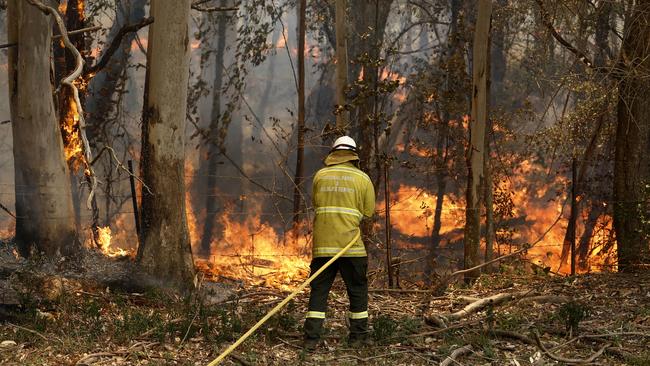World Economic Forum global risk report reveals stark cost of living, climate change concerns
The World Economic Forum warns that governments will face ‘tough trade-offs’ as they manage the cost of living crisis, geopolitical security and climate change.

Governments will face “tough trade-offs” as they manage the cost of living crisis, geopolitical security and dealing with climate change in coming years, with vulnerable countries potentially facing a “perpetual state of crisis”.
That’s a key warning from the World Economic Forum’s latest Global Risks Report which highlights the cost of living crisis, natural disasters and extreme weather and geo-economic confrontation as the top risks over two years.
The report garnered responses from more than 1,200 risk experts, academia, business, government and other participants with responses collected for about a month until October 5, 2022. The document is produced annually and in 2023 the report was in partnership with Marsh McLennan and Zurich Insurance Group.
“Short-term geo-economic risks are putting net-zero commitments to the test and have exposed a gap between what is scientifically necessary and politically palatable,” the WEF report found. “Dramatically accelerated collective action on the climate crisis is needed to limit the consequences of a warming world. Meanwhile, security considerations and increasing military expenditure may leave less fiscal headroom to cushion the impacts of an elongate cost of living crisis.
“Without a change in trajectory, vulnerable countries could reach a perpetual state of crisis where they are unable to invest in future growth, human development and green technologies.”
The report urged governments and business to work “collectively and decisively” to balance those forces over the short and medium term, while also taking action to limit global warming.
On the issue of extreme weather, the report noted heatwaves and droughts were already causing “mass mortality events” for animals and plants, citing a hot day in 2014 when more than 45,000 flying foxes in Australia were killed. It also outlined that sea level increases and heavy storms had caused the first extinctions of entire species.
“2023 is set to be marked by increased risks related to food, energy, raw materials and cyber security, causing further disruption,” said Carolina Klint, Marsh’s Continental Europe risk leader.
Over ten years, climate change and environmental risks dominated responses in the WEF report. The top risks cited were failure to mitigate climate change, failure of climate-change adaptation, natural disasters and biodiversity loss and ecosystem collapse.
“The interplay between climate change impacts, biodiversity loss, food security and natural resource consumption is a dangerous cocktail,” said John Scott, Zurich’s head of sustainability risk.
“Without significant policy change or investments, this mix will accelerate ecosystem collapse, threaten food supplies, amplify the impacts of natural disasters and limit further climate mitigation progress,” he said.
“Recent progress in the deployment of renewable energy technologies and electric vehicles gives us good reasons to be optimistic.”
The economy-specific responses listed the cost of living crisis, debt crisis and rapid or sustained inflation as the biggest risks cited from respondents about Australia.
“In the near term, cost of living is the key issue in Australia... particularly given the impact it has on economic inequality and general social and political cohesion,” said Jaimie Sach, Zurich’s Australia and New Zealand chief risk officer.
“Over the longer term... Of particular interest in an Australian context is the increasing risk around resource competition, specifically in critical ‘new-economy’ minerals where we are a key global supplier. This will be a significant area of future economic and geopolitical interest.”
The report noted that annual demand for resources such as copper, zinc, aluminium, graphite, lithium, coltan and cobalt was anticipated to hit 450 per cent of 2018 production levels by 2050.
It also found that with a trend towards remilitarisation, critical minerals and metals could be among the “primary fronts” of economic and geopolitical warfare over the latter half of the decade. That was amplified by the “building of national stockpiles of key materials”, the report said.
Other concerns that made both the World Economic Forum’s top risks over the near and long term included cyber security and crime and large-scale involuntary migration.
The report noted involuntary migration typically stemmed from “persistent discrimination and persecution, lack of economic advancement opportunities, natural or human-made disasters, and internal or interstate conflict”.
More broadly, the report’s conclusion noted governments needed to address current crises without being distracted from the longer-term view.




To join the conversation, please log in. Don't have an account? Register
Join the conversation, you are commenting as Logout